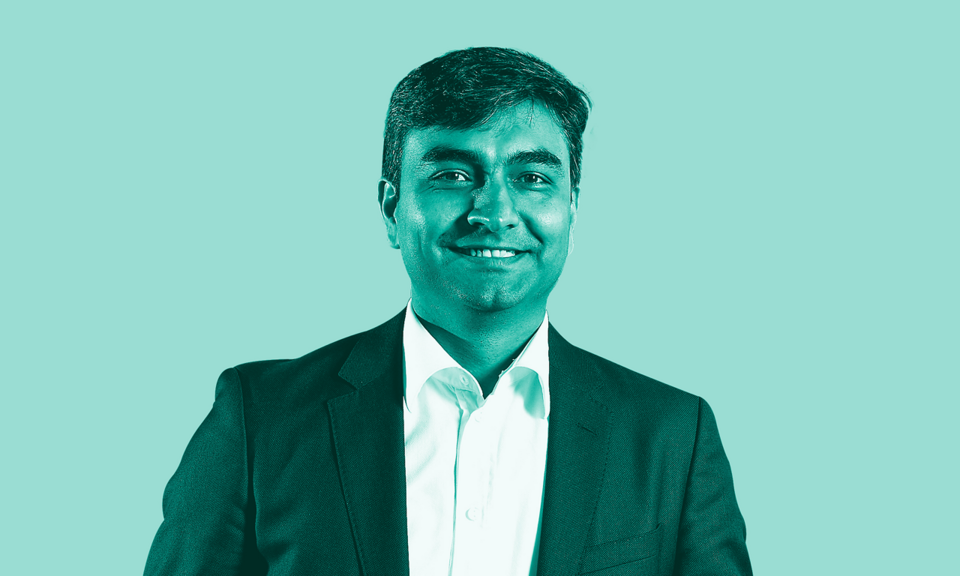
Written by
Published
Category
Key topics
To develop your leadership, you will need to look honestly at your personal weaknesses and strengths, and address them in a way that's authentic with what you want to achieve. Authenticity should be reflected in your behaviour, consistently
If you were to ask five different people to define a leader or leadership, you’d get five different answers.
That is because our understanding of leadership depends on what we’re exposed to. Many will reference famous names: Steve Jobs, Elon Musk or Bill Gates. This reflects an individualistic and archaic “Great Man” theory of leadership. In this view, only a select few are capable of leading.
It also reflects a tendency to frame “leaders” as “he or him”. This is a narrow conception, not least because it excludes the many leaders who are not men. “Leader” is a gender-neutral word.
Over 90 per cent of the challenges faced by leaders relate to the motivation of their team
So, where should we start with leadership? Certainly, many agree leadership is distinct from management. One may be one and not excel in the other; let’s face it, not everyone can be a leader. Furthermore, leadership is distinct from hierarchy, seniority and job titles; though these may enable leaders to realise their full potential or reflect the esteem in which they are held. Nonetheless, leaders can exist at any level where it’s possible to make an impact and empower their team.
A leader must have followers – in the form of juniors, peers, or even competitors. They must lead and inspire towards a new idea or initiative, something that hasn’t been done before.
We can measure the very different approaches taken by world leaders in 2020 against this, to deem which truly can be defined as such. Tragically, the cost of reactivity or delay impacted human lives. Any adherents of the Great Man theory have been given something to think about. Much future research on gender differences in managing crisis will arise from this.
Leadership begins with self-knowledge
Our classification so far is broad. That is by design; an essential facet of leadership is authenticity. Authenticity here has two meanings: first, an alignment between words and actions, a willingness to take responsibility. Second, being true to oneself, not trying to fit any mould. One leader is not like another – or they wouldn’t be an authentic leader. The idea is simple: when you are genuine, it will come naturally, and artificiality will be ineffective.
To be true to oneself, one must know oneself. Consequently, our efforts to train future leaders at Imperial start at a micro-level. We ask students to look deeply at themselves, who they are, their strengths and their weaknesses. The last part is important: leaders are flawed and emotional humans, not gods. Understanding our weaknesses helps prevent them becoming chronic.
We use psychometric testing, which gauges personality and emotional intelligence. When we understand how our compulsive and impulsive behaviours affect others, we can regulate them, bringing people along with us.
Steve Jobs didn’t design the iPhone single-handedly; Elon Musk does not build rockets or electric cars
Beyond the self is the team. We use experiential learning exercises to look at how leaders emerge and work with others. Small teams of students work together on a Lego challenge or solve real challenges together, albeit in a virtual simulator. We also visit stables to work in teams with horses – which can read our emotions with astonishing clarity.
The teamwork element is another argument against the Great Man theory. Each supposed example was or is supported by an enthusiastic and talented team who wants to contribute to a cause: Steve Jobs didn’t design the iPhone single-handedly; Elon Musk does not build rockets or electric cars.
Over 90 per cent of the challenges faced by leaders relate to the motivation of their team. We discuss how to create high-performance teams with gender and functional diversity, and discuss different mechanisms for creating inclusive collaboration, and healthy cognition-based (distinct from affective) conflict.
Leadership is a responsibility, not a title
The remote working made necessary by COVID-19 has created new challenges for leaders. The often-hierarchical dynamics of digital meetings pose barriers to communication, particularly for introverted and junior team members. The loss of small signs like eye contact or non-verbal cues is keenly felt. Burnout and strained mental health are also real risks for leaders and their teams alike.
Mindful leadership is important in this context. This is the practice of taking things one-by-one, as they come, focusing on the essential. Of being present, prioritising being over doing. We try to experience this approach in the classroom.
For leaders, mindfulness can improve focus, protecting us against the information overload and constant stress of contemporary life.
Leadership is distinct from hierarchy, seniority and job titles
Benefits extend to those being led: now, more than ever, leadership is a responsibility, not a title. Mindful leadership, as research with which I have been involved has shown, demonstrably improves results, lowers staff turnover, and strengthens leader-follower relationships and mental wellbeing in organisations. It is clear why this idea has considerable cachet at top companies nowadays.
One further level of leadership exists beyond the team: the firm. Leaders are initiators or flag bearers of organisational culture. We employ different cultural simulations to consider how leaders can impact culture and create structured policies for its sustainment. Managing change is fundamental here, steering people decisively away from their comfort zones and routines to embrace change.
If the last year has taught us anything, it is how important being ready for change can be, at personal, team and organisational levels alike. Our fundamental goal is to prepare future leaders, who are authentic, ethical and more human, to help create a more inclusive and resilient society.
Learn more about becoming a confident leader on Imperial Business School's Full-Time MBA


